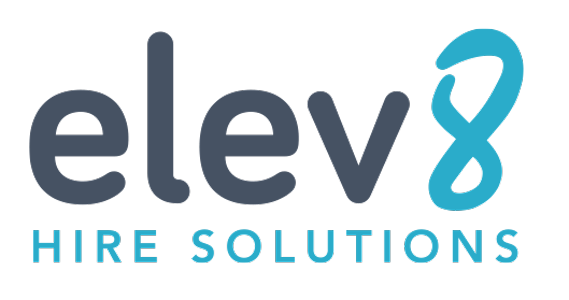
5 Types of Interview Fails Ruining Recruiting Right Now
Hiring, particularly in tech, is a precarious gauntlet to run these days—and many organizations are setting themselves up to fail needlessly. These companies are often well meaning, devising interview processes that they think help them, but actually do such a disservice to the candidate—they lose the opportunity to work with them.
Innocently sabotaging their chances to hire, these organizations looking to hire technical talent typically trip up in 5 ways.
1. They require an unnecessarily large coding project.
Often, hiring managers recruiting technical talent are not experts in the candidate’s field. Unconfident on how to assess technical chops, they create an end-to-end project that either works, or doesn’t work, to pass the test. These projects can be large, and time consuming to complete—usually taking anywhere from 2 to 10 hours.
Candidates are immediately overwhelmed with a decision—Is this worth my time? Do I really want this job? Is this a sign that the company likes busywork? Often, the answer is not clear and becomes a defacto no. It is a price they are unwilling to pay early in the game, and one that creates doubt in your organizational performance.
Employers who do not respect the time and intelligence of candidates hemorrhage quality talent from their pipelines, plain and simple.
Large coding projects should generally be avoided. Instead, look to include candidates on a paired programming session for something real. Get them working on real work, ideally selling what it is like to work with their future peers. If that is not possible, look to smaller technical assessments, but attempt to keep them in line with your industry and the job they’re applying to.
2. They require incredibly generic coding tests.
Typically repurposed from sources outside your organization, such as the technology assessment libraries of HackerRank, Codility, and Filtered, these tests can be a shortcut to test development skills for folks that do not know development. While something can be viewed as better than nothing—be careful with this one.
Developers are a snarky class of people. They pick problems apart until they’ve solved them for a living, and they despise wasting time. So, while you are satisfying your need to understand how they work, you better be sure what you are testing them on is relevant to the job, otherwise you run the risk of being revered as unworthy.
A better solution would be to adapt one of these tests to your own environment and active software development. Show them their future work environment, and see how they operate. You’ll learn a lot more about practically what it will mean to start this person, and they’ll view you as more real.
If adapting one of these generic tests is not possible, you’ll either need to sell the candidate that the effort is reusable—perhaps for other positions in the company—or opt to forgo an assessment completely. Perhaps in these cases, you are better off doing reference calls and asking their peers about their strengths and weaknesses.
What we have found to be most successful for the majority of our clients is pair programming a real-life issue with one of your developers. This allows you to see how the interviewee thinks, problem-solves, asks questions, and most importantly how they work with others on the team. This helps you understand if they will fit into your particular environment.

3. They design tests that are too hard.
For intensely logic-driven people, knowledge is power. They are the best, and seek to only hire the best. Often, these types create tests that are designed to eliminate all but a few—and often, those few are not the ones they really want.
For instance, one super-bright startup created overly difficult tests designed to test modern development knowledge. They were aiming to bring on senior developers, but the test was so academic, only recent college grads with no practical experience succeeded. They realized how flawed the test was when their entire roster of tenured employees could not pass.
It is important to design tests, assessments, and challenges to identify the key traits that you will build on when the candidate is safely in the role. For instance, at Elev8, we generally make screened candidates create a high level sales pitch for 3 targets. We make it clear they can use their network and solicit any help they need. What we want to see is that they know the role and the business they will be getting into, how they approach preparing, and how well they communicate their work and ideas.
Knowing that divide between aptitude and achievement—between what can and can’t be taught—is critical path to creating successful interview processes.
4. They let the interview process go on more than a week.
In today’s world, companies who let their interview process go longer than a week have a 90% chance of losing the candidate. This is quite possibly the biggest reason for recruiting failure, and the simplest to fix..
Many organizations view the interview process as a talent show, where they see all the contestants and then vote to make a choice when they are magically ready. Or, they simply allow scheduling conflicts, other work and even laziness to add days or weeks to an interview process.
In the past, when hiring was less competitive, this was a luxury some could afford. However, those days are long gone.
Today, interviewing should be more akin to scratch tickets, where each candidate can be a winner. For a scratch ticket, you’d never take days to find out it's a winner, and if it was a big one, you’d want to cash in immediately!
Candidates should be the same. Create a one-and-done day of interviewing. Design your interviews for pass-fail, and successful candidates should get an offer. If you have a few candidates in the pipeline and do need to choose just one, just don’t let the process drag out over a week.
5. Make the most competitive offer first.
Companies still believe that they are in power because they control the job offer and the money. They are looking to get the best deal possible for the company, which is of course rooted in good faith.
However, this is now an employee market. Companies don’t have the power, employees do. And they are looking for the best deal for themselves first. Low offers keep them open to continuing their search, plus it sends the message that the company is indifferent to their talents. It fails to make the employee feel truly wanted.
Then counter-offers start coming, and chances to successfully start the new hire plummet.
This behavior is rampant, especially as competition to retain and obtain talent becomes more fierce. Last month alone, Elev8 clients lost 50% of accepted offers to counter offers that came before the employee start date. That is a tremendous amount of effort wasted, and the opportunity costs of filling the position start to pile up quickly.
Part of this is unavoidable as competition for scant resources increases. However, you can do well to mitigate these risks by aggressively acting from the start with the most compelling offer you can make.
